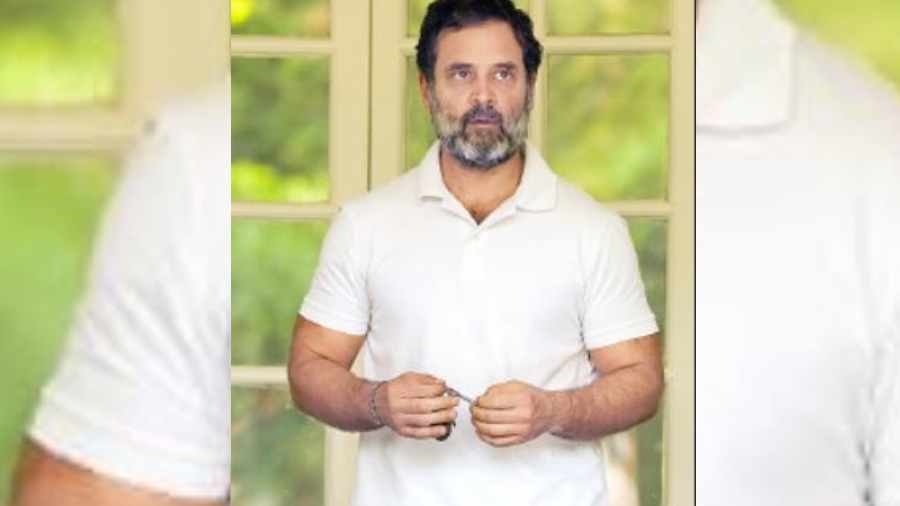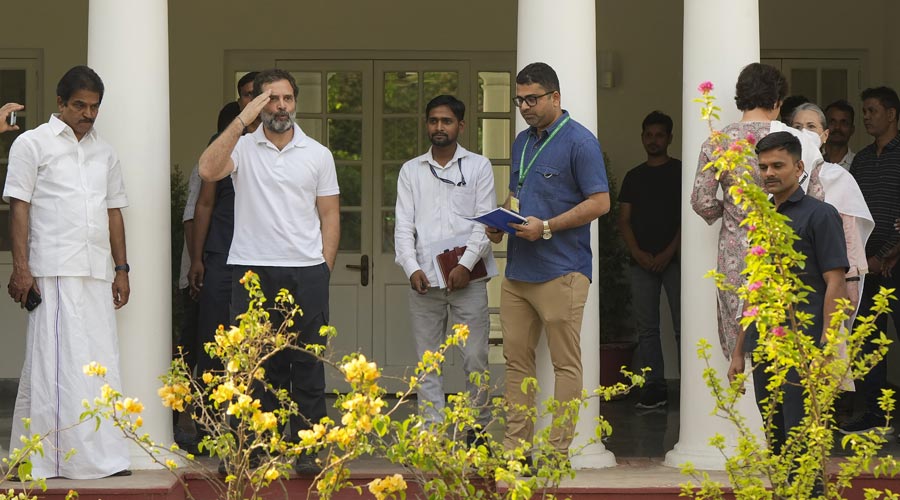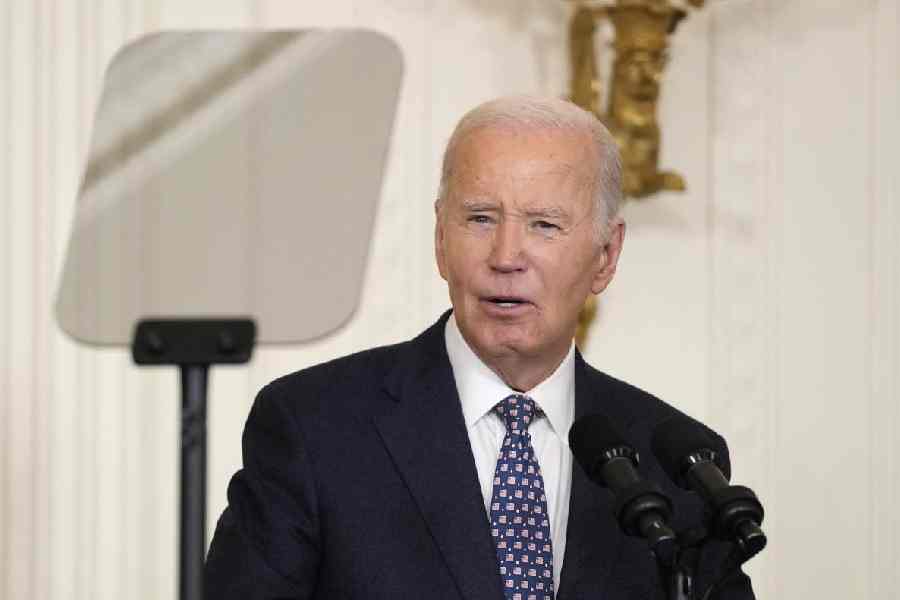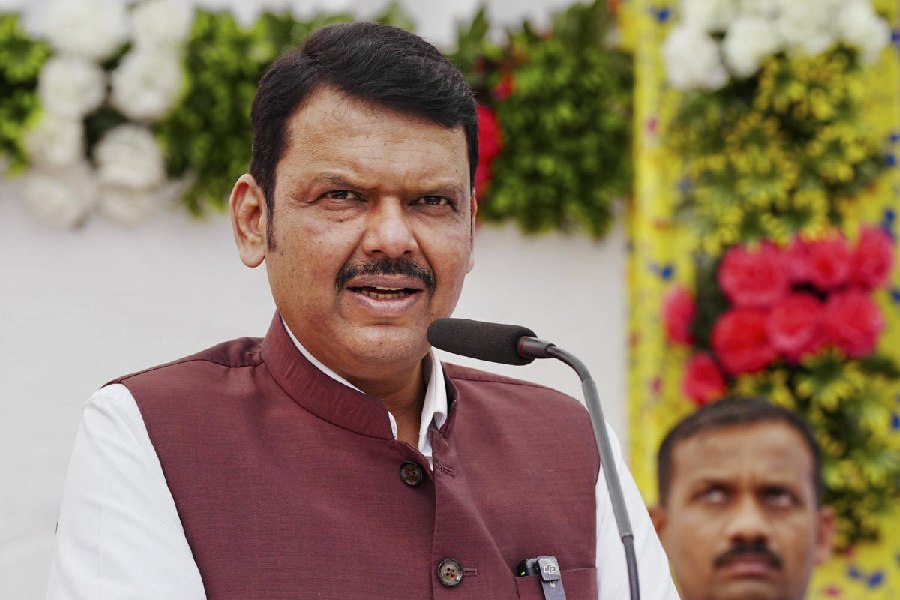Rahul Gandhi on Saturday vacated his official residence, implying with his comments that he was the victim of a political vendetta but asserting he would not compromise with his tormentors.
“There is a price for speaking the truth; I am ready to pay that price,” he said after handing the house keys over to officials of the urban development ministry in the afternoon.
Rahul said he would continue to voice the people’s concerns, whatever the consequences.
The Congress leader has had to vacate his official residence after being disqualified as MP following his conviction in a defamation case. He had been awarded the maximum punishment of two years — a rarity in itself apart from the apparent coincidence of being the minimum term needed to disqualify a lawmaker.
Rahul’s chances of immediate relief evaporated when a sessions court refused to stay the magistrate’s conviction order, appearing to magnify the Congress leader’s transgression by drawing comparisons with offences such as corruption and manslaughter.
Rahul’s legal team says the sessions court was free to uphold the conviction after the hearing if it found him guilty, but it should have stayed the conviction now given the enormous price Rahul was paying: disqualification as an MP.
Rahul had the option of requesting the government to extend his stay in the house, 12 Tughlaq Lane, beyond the April 22 deadline. But, Congress sources said, such a request would have gone against his principles.
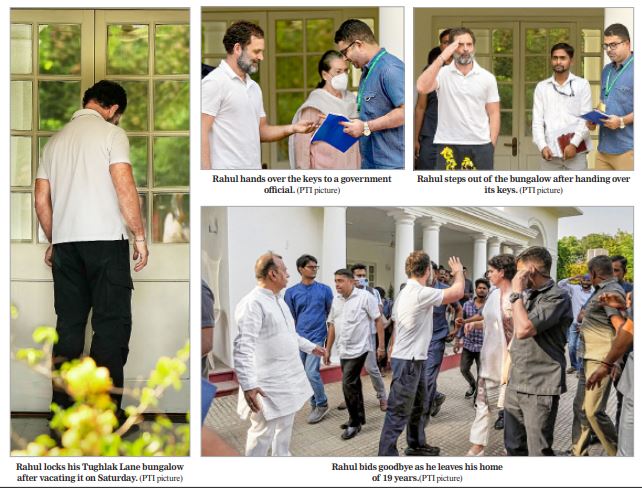
His mother Sonia Gandhi, sister Priyanka and some party leaders were present when Rahul himself locked the house and left.
Asked why he had not requested an extension, Rahul said: “I didn’t want to. The people of India gave me this house. I lived here for 19 years. Now this house has been snatched from me. No problem.”
He added: “I will live for some time with former Congress president (Sonia) and then make some other arrangement.”
The dislocation means a massive disruption for Rahul, as a full-fledged secretariat worked for him at the bungalow.
It’s rare for political leaders to vacate their official residences on time. Many MPs have been known to overstay for months if not years, with some choosing to pay rent at the market rate — as the rules demand — rather than leave.
After the 2019 elections, over 200 defeated MPs kept their houses for over three months. More than 80 received firm eviction notices after five months.
BJP veterans L.K. Advani and Murli Manohar Joshi are still occupying their government bungalows despite not having been MPs for years.
The Narendra Modi government has allowed Advani to retain his official bungalow for life because of security reasons, and Joshi has kept getting regular extensions.
It’s anyone’s guess whether Rahul’s threat perception is lower than that of Advani but his relations with the Modi government are doubtless far worse.
The latest round of trouble for Rahul began with his blunt questioning in Parliament on the Adani controversy and the businessman’s relations with Modi. Most of what he said was expunged from parliamentary records.
But within days, the complainant in the defamation case, Gujarat BJP lawmaker Purnesh Modi, had approached Gujarat High Court to lift the stay on the defamation hearing that he had himself earlier obtained.
The hearing was wrapped up promptly and conviction and sentencing orders passed, leading to Rahul’s disqualification. It led the Congress to allege that Prime Minister Narendra Modi had now ensured that Rahul would not speak on Adani in Parliament.
Rahul hasn’t shown any sign of fear or nervousness so far. The tenor of his criticism remains the same, as reflected in a tweet posted a couple of days ago.
“Airport seth ke, port seth ke/ Bijli seth ke, koyla seth ka/ Sadken seth ki, khadane seth ki/ Zameen seth ki, aasman seth ka/ Seth kiska, seth sahib ka!” he posted.
What it meant in a nutshell was that every asset and resource now belonged — that is, was being handed over to — a particular businessman who, in turn, belonged to “sahib”.

